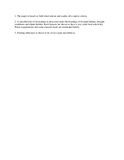| dc.contributor.author | Sale, JB | |
| dc.date.accessioned | 2015-09-22T10:54:59Z | |
| dc.date.available | 2015-09-22T10:54:59Z | |
| dc.date.issued | 1965 | |
| dc.identifier.citation | African Journal of Ecology Volume 3, Issue 1, pages 1–18, August 1965 | en_US |
| dc.identifier.uri | http://onlinelibrary.wiley.com/doi/10.1111/j.1365-2028.1965.tb00733.x/abstract | |
| dc.identifier.uri | http://hdl.handle.net/11295/91314 | |
| dc.description.abstract | 1. The paper is based on field observations and studies of a captive colony.
2. A classified list of food plants is discussed under the headings of lowland habitat, drought conditions and alpine habitat. Rock hyraces are shown to have a very wide food selectivity. Water requirements and some unusual foods are mentioned briefly.
3. Feeding behaviour is shown to be of two types described as “group” and “casual” feeding. The pattern of group feeding is described and its diurnal occurrence discussed. Casual feeding is briefly considered.
4. Evolutionary changes in hyrax feeding habits have been in the direction of decreasing selectivity of food material. The relationship of hyraces to the ungulate stock is supported by a number of similarities between the feeding behaviour of modern hyraces and ungulates. | en_US |
| dc.language.iso | en | en_US |
| dc.publisher | University of Nairobi | en_US |
| dc.title | The feeding behaviour of bock hyraces (genera procavia and heterohyrax) in Kenya | en_US |
| dc.type | Article | en_US |
| dc.type.material | en | en_US |

